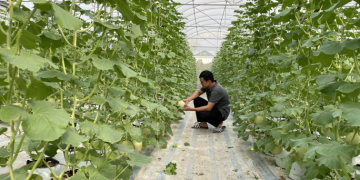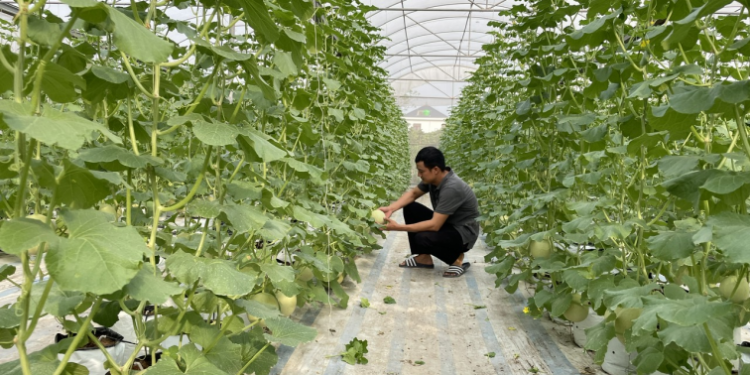#AgriculturalInnovation #SafeProduction #VietGAP #SustainableAgriculture #FarmersSuccess #TiênLữAgriculture #EnvironmentalProtection #EconomicGrowth
In recent times, the agricultural landscape of Tiên Lữ district has undergone significant advancements, emphasizing the production of goods aligned with market demands. Notably, there has been a prioritization of safe production models following the VietGAP process. This shift is in line with the objectives outlined in the district’s Initiative 01-DA/HU, dated November 28, 2021, aimed at developing agricultural production using scientific and technological advancements to create branded, competitive agricultural products in the 2021-2025 period.
Mr. Nguyễn Văn Uyển, a farmer from Ngô Quyền commune, attests to the benefits of adopting VietGAP practices. By implementing these processes in fruit cultivation, he witnessed reduced pesticide costs, increased post-harvest product yields, and improved product quality. The safety-focused production resulted in higher market prices, making his pomelo yield more profitable, generating over 200 million VND annually from two VietGAP-oriented pomelo orchards.
The district of Tiên Lữ currently boasts a diverse range of safe agricultural production models, each intricately linked with sustainable development, food safety, and environmental protection. Beyond ensuring a secure food supply, these models prove to be economically viable, contributing to increased income and improved livelihoods for the local population. To propagate these safe production models, the district has organized 21 training sessions on scientific and technical knowledge transfer since 2021, providing support in various forms, including labeling fresh fruit boxes, activating traceability tags, supplying organic microbial fertilizers, and certifying farms under VietGAHP.
Mr. Phạm Quốc Vượng, Director of the Bình Minh Safe Vegetable Cooperative (located in Thiện Phiến commune), highlights the cooperative’s goal of transforming production methods to VietGAP standards. The cooperative has invested in constructing over 10,000 square meters of net houses and greenhouses on more than 15 hectares of natural production land. Through partnerships with over 15 local farmers, the cooperative ensures production, consumption, and adherence to VietGAP standards. Members undergo training covering the entire production process, from soil preparation and seed selection to harvesting. Rigorous control over pesticide use, following the “4 rights” principle, has allowed the cooperative to achieve stable production, yielding diverse, high-quality vegetables. With a monthly output exceeding 30 tons of various vegetables, the cooperative generates annual revenue of 3-4 billion VND, resulting in a profit margin of 10-15% after deducting expenses.
The widespread application of scientific and technical standards, such as VietGAP, has allowed many cooperatives, farms, and agricultural production facilities in the district to build and establish their product brands. The district has certified 23 organizations and individuals under VietGAP, and various high-quality and safe agricultural production and consumption partnerships have been formed. This has led to the creation of concentrated agricultural production zones, such as the vegetable production zone in Thiện Phiến commune and fruit cultivation zones in several other communes. These efforts not only provide consumers with high-quality agricultural products but also significantly contribute to improving the overall efficiency of agricultural production in the district.
The agricultural revolution in Tiên Lữ, marked by the adoption of safe production models, particularly VietGAP, has yielded remarkable results. Farmers have experienced reduced costs, increased yields, and improved product quality, leading to higher profits. The district’s proactive approach in promoting sustainable and safe agricultural practices has not only enhanced food safety but has also become a catalyst for economic growth. The cooperative efforts, training programs, and certifications have created a robust foundation for building resilient and economically viable agricultural communities.































